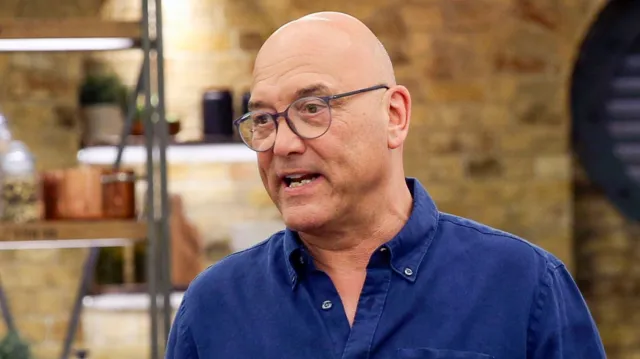Gregg Wallace Faces Fierce Backlash Over Autism Defense Amid Misconduct Allegations
Television personality Gregg Wallace is currently at the center of a significant controversy following his public statements that appeared to link the misconduct allegations against him to his recent autism diagnosis. The backlash has been swift and severe, with numerous charities and advocacy groups for disabled people strongly condemning his remarks, asserting that autism should not be used as a justification for inappropriate behavior in any setting.
Wallace, widely recognized for his long-standing role as the host of the popular BBC cooking show MasterChef, has been accused by a significant number of individuals. BBC News has reported that more than fifty people have come forward with allegations, which include claims of inappropriate sexual comments, unwanted touching, and groping. Wallace has publicly denied these accusations.
In a recent statement posted on Instagram, Wallace defended himself and revealed his autism diagnosis. He controversially suggested that television executives had failed to “investigate my disability” and protect him from what he now perceives as a “dangerous environment” over two decades of his career.
This perspective has been met with strong criticism. Seema Flower, founder of the disabilities consultancy Blind Ambition, stated unequivocally that “there is no excuse” for inappropriate conduct towards others in society. She questioned the implication: “Where does it leave us if we use autism as excuse to behave in whatever way we like?” This sentiment was echoed by Emily Banks, founder of the neurodiversity training body Enna, who emphasized, “To be clear: being autistic is never an excuse for misconduct. It doesn’t absolve anyone of responsibility, and it certainly doesn’t mean you can’t tell the difference between right and wrong.”
Dan Harris, who leads the charity Neurodiversity in Business and is himself autistic, added to the chorus of concern. He explained that while individuals with autism “may miss social cues sometimes,” it is crucial to understand that “autism is not a free pass for bad behaviour.” Harris further highlighted the damaging impact of such statements, noting, “Comments like this stigmatise us and add an unfortunate negative focus on our community.” Previously, the charity Ambitious About Autism had removed Wallace as an ambassador following the initial allegations against him.
The controversy has also fueled debate across various media platforms. On BBC Radio 2’s Jeremy Vine Show, Jessie Hewitson, Director of NeuroUniverse, expressed concern that linking autism to misconduct risks reinforcing harmful stereotypes and creating a dangerous association in the public mind. She warned that such narratives could imply that autistic individuals behave inappropriately in the workplace or lack personal responsibility.
However, Wallace’s statement also garnered supportive messages online, and some callers on BBC Radio 5 Live’s Nicky Campbell Show expressed sympathy. One autistic caller, Danielle, shared her experience of misreading social cues and internalizing feelings of being “wrong” due to being different, highlighting the emotional sensitivity that can accompany undiagnosed autism. Another caller, Jake, voiced support for Wallace receiving help, suggesting he needed compassion and guidance after a prolonged period of potential isolation from corrective feedback.
Gregg Wallace, 60, has been a prominent figure on British television for twenty years, most notably as the face of BBC One’s MasterChef. He stepped away from the show in November after an initial BBC News investigation into allegations made by thirteen people. This was followed by further claims from fifty more individuals spanning various shows and professional settings. While the majority of allegations involve inappropriate sexual comments, eleven women have accused him of more serious sexual misconduct, including groping and touching.
An independent investigation into the allegations was conducted by an external law firm on behalf of MasterChef’s production company, Banijay. While BBC News has not seen the full report, Wallace has stated that it cleared him of what he termed the “most serious and sensational allegations” and accused the BBC of “peddling baseless and sensationalised gossip.” A spokesperson for Wallace reiterates his denial of any sexually harassing behavior. Banijay UK stated they would not comment on individual allegations while the investigation is ongoing, and the BBC confirmed they would not comment until the investigation is complete and its findings are published.
The implications of Wallace’s statements are far-reaching, sparking a crucial conversation about neurodiversity, accountability, and the importance of accurate representation in media. As the investigation’s findings are awaited, the public discourse continues, highlighting the delicate balance between understanding neurodevelopmental conditions and upholding standards of professional conduct.

